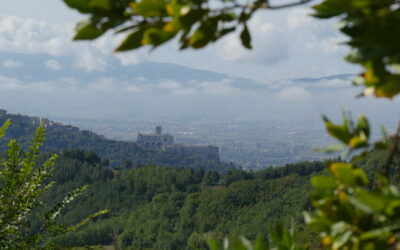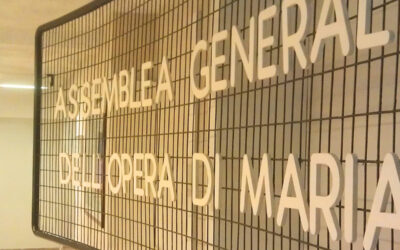 “Coming in this zone, something has exploded. This idea has exploded: truly God has given us a new ecumenism. There was already the ecumenism of charity, that is, the dialogue of charity, as when Athenagoras brought gifts to the Pope, the Pope brought gifts to Istanbul, to Athenagoras; as when Ramsey brought gifts to the Pope, the Pope brought gifts… in order to indicate a drawing closer to one another. There was already the dialogue of prayer, in which we all pray together, especially during the Week of Prayer for Christian Unity. And there was already the theological dialogue, which has been blocked in many parts, also here in England a little… held back a little. We realized, especially in coming here, that we have a fourth dialogue, a fourth line. Our dialogue is the dialogue of life, the dialogue of a people which is already Catholic, Anglican, Lutheran, Reformed… of a people who are already all united and who are a people… they are the Christian people of the year 2000, of our times. We realized that this is our way of being involved in ecumenism, that is, of awakening the Christian instinct of Christians, joining everyone together because the bottle is almost full, joining everyone together and bringing ahead this people. Years ago, the Pope said: “You are a people,” but he intended to say “because of your number.” Now we are four times as many as we were then, when the Pope told us that…. But what people do we intend? The Christian people. The people… we are this people, we are this people. When I spoke with the focolarini the other day – there was Lesley and Callan * – I said: “Who will ever separate me from Lesley and from Callan? No one, because Christ has united us! Jesus in our midst has united us. No one can separate us!” Now, who says anything like this in the ordinary Christian world among Orthodox and Catholics and Lutherans? Everyone goes off on their own. Everyone follows their own Churches, of course; in the meantime this must be done, looking after the people entrusted to them, following their own current, their own denomination; but who says: “No one can separate me, because Christ has united us!”? The fact is that Christ has united us and He has made us one people, and this is the small “bomb” that has exploded here in England. Dearest all, thank you also for this applause. I never thank people for applause, but it means that you are with me, it means that we are together in living this way!” Chiara Lubich, London, 16 November 1996 – to the Focolare community of Great Britain and Ireland
“Coming in this zone, something has exploded. This idea has exploded: truly God has given us a new ecumenism. There was already the ecumenism of charity, that is, the dialogue of charity, as when Athenagoras brought gifts to the Pope, the Pope brought gifts to Istanbul, to Athenagoras; as when Ramsey brought gifts to the Pope, the Pope brought gifts… in order to indicate a drawing closer to one another. There was already the dialogue of prayer, in which we all pray together, especially during the Week of Prayer for Christian Unity. And there was already the theological dialogue, which has been blocked in many parts, also here in England a little… held back a little. We realized, especially in coming here, that we have a fourth dialogue, a fourth line. Our dialogue is the dialogue of life, the dialogue of a people which is already Catholic, Anglican, Lutheran, Reformed… of a people who are already all united and who are a people… they are the Christian people of the year 2000, of our times. We realized that this is our way of being involved in ecumenism, that is, of awakening the Christian instinct of Christians, joining everyone together because the bottle is almost full, joining everyone together and bringing ahead this people. Years ago, the Pope said: “You are a people,” but he intended to say “because of your number.” Now we are four times as many as we were then, when the Pope told us that…. But what people do we intend? The Christian people. The people… we are this people, we are this people. When I spoke with the focolarini the other day – there was Lesley and Callan * – I said: “Who will ever separate me from Lesley and from Callan? No one, because Christ has united us! Jesus in our midst has united us. No one can separate us!” Now, who says anything like this in the ordinary Christian world among Orthodox and Catholics and Lutherans? Everyone goes off on their own. Everyone follows their own Churches, of course; in the meantime this must be done, looking after the people entrusted to them, following their own current, their own denomination; but who says: “No one can separate me, because Christ has united us!”? The fact is that Christ has united us and He has made us one people, and this is the small “bomb” that has exploded here in England. Dearest all, thank you also for this applause. I never thank people for applause, but it means that you are with me, it means that we are together in living this way!” Chiara Lubich, London, 16 November 1996 – to the Focolare community of Great Britain and Ireland
Take a sense of family everywhere
Take a sense of family everywhere




0 Comments